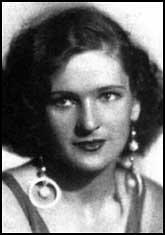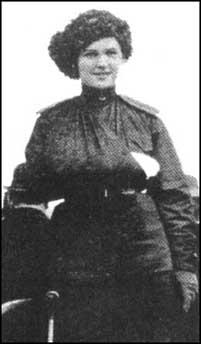Marina Yurlova

Marina Yurlova was born in a small village in the Caucasus mountains in 1901.
When she was fourteen years old she joined the Russian Army. At first she worked as a groom in Armenia but after two months was sent to fight the Turkish Army.
In 1915 Yurlova was wounded while blasting bridges across the Erivan River. After being treated at the Red Cross hospital in Baku, Yurlova returned to the Eastern Front.
In 1916 she was wounded again and after suffering a complete mental breakdown, was placed in an asylum in Omsk. In 1919 she was released and managed to emigrate to the United States.
Marina Yurlova published two autobiographies, Cossack Girl (1934) and Russia Farewell (1936).

Primary Sources
(1) Marina Yurlova, Cossack Girl (1934)
I am not exaggerating when I say that I felt no remorse and no fear. I was a Cossack. As with my companions, so with me it was a blind instinct to follow men to war. And beside that, to me - caught up in all this violence and carried helplessly along - here was an adventure, the sort of adventure I had dreamed about.
(2) Stephen Graham, Russia and the World (1915)
There is scarcely a town or school in Russia from which boys have not run away to the war. Hundreds of girls have gone off in boys' clothes and tried to pass themselves off as boys and enlist as volunteers, and several have got through, since the medical examination is only a negligible formality required in one place, forgotten in another; the Russians are so fit as a whole. So among the wounded in the battle of the Nieman was a broad-shouldered, vigorous girl from Zlato-Ust, only sixteen years old, and nobody had dreamed that she was other than the man whom she was passing herself off. But not only boys and girls of sixteen and seventeen, but children of eleven and twelve have contrived to have a hand either in the fighting or in the nursing.

